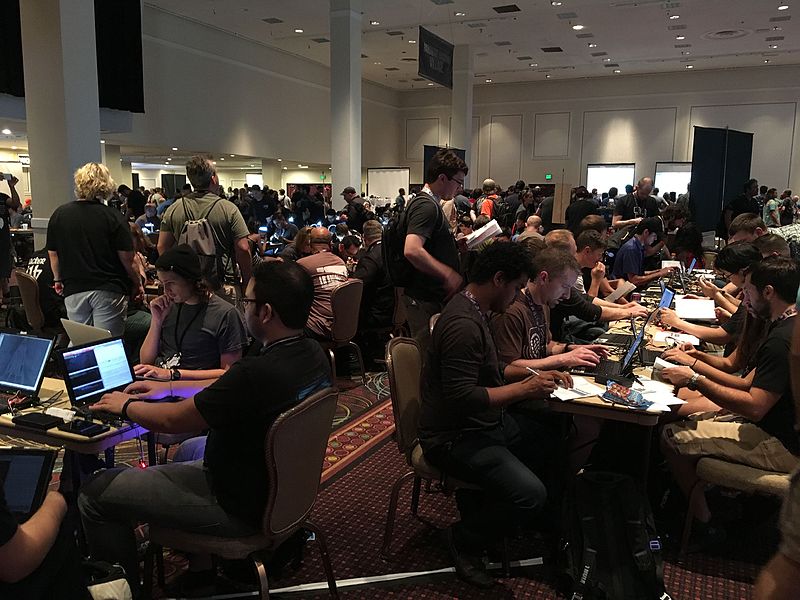
DEF CON Hackers Uncover Voting Machine Vulnerabilities, But Time Runs Short Before Election Day
Share
During the 2024 DEF CON hacking conference in Las Vegas, some of the nation’s most skilled cybersecurity experts gathered to probe the security of voting machines that will be used in the upcoming U.S. elections. What they found was concerning: several significant vulnerabilities that could potentially be exploited to undermine the integrity of the electoral process. Despite their best efforts, the experts now face a race against time to address these issues before Election Day, which is only 90 days away.
This isn’t the first time that DEF CON hackers have revealed weaknesses in voting systems. In fact, the conference has become an annual event where security flaws in election technology are brought to light. However, the process of addressing these vulnerabilities is frustratingly slow. Election security is governed by stringent certification processes that take time, making it unlikely that any fixes can be implemented before the upcoming elections.
One of the major issues highlighted at DEF CON is the aging infrastructure of many voting machines. Many of these machines are running on outdated software, some of which is no longer supported by the manufacturers. This not only makes them vulnerable to hacking but also makes it difficult to update or patch the systems quickly. The lack of modern, secure technology in these machines poses a significant risk to election security.
The vulnerabilities identified at DEF CON varied widely, from physical access points that could allow a bad actor to tamper with a machine to software flaws that could be exploited remotely. The concern is that even if these vulnerabilities are not exploited on a large scale, their mere existence could be used to cast doubt on the legitimacy of the election results. This could further erode public trust in the democratic process, which has already been shaken by previous instances of election interference.
One of the key takeaways from the DEF CON conference is the need for better collaboration between voting machine manufacturers and cybersecurity experts. While some progress has been made in recent years, with a few vendors starting to work more closely with the security community, there is still a long way to go. The current system is not agile enough to respond quickly to the rapidly evolving threat landscape, and this could have serious consequences for election security.
To mitigate these risks, some experts are calling for a shift in how election security is approached. Instead of relying on outdated machines and slow certification processes, they suggest moving towards more modern, secure systems that can be updated regularly. This could involve using open-source software, which can be reviewed and improved by the broader cybersecurity community, or adopting more secure voting methods, such as paper ballots, which are less vulnerable to tampering.
However, any changes to the election system will need to be carefully considered to avoid unintended consequences. For example, while paper ballots are more secure in some respects, they are also more susceptible to human error and can be more difficult to count accurately on a large scale. Similarly, while open-source software offers many advantages, it also requires a high level of expertise to manage and secure properly.
As the election draws nearer, the urgency of addressing these vulnerabilities becomes more apparent. While it is unlikely that all of the issues identified at DEF CON will be fixed in time for the 2024 election, there is still hope that some improvements can be made. Election officials, vendors, and cybersecurity experts will need to work together closely to ensure that the upcoming election is as secure as possible.
The revelations at DEF CON serve as a stark reminder of the challenges facing election security in the digital age. As technology continues to play an increasingly important role in the electoral process, ensuring the integrity of voting systems will be crucial to maintaining public trust in democracy. The time for action is now, and while the road ahead may be difficult, it is one that must be traveled to protect the future of free and fair elections in the United States.
